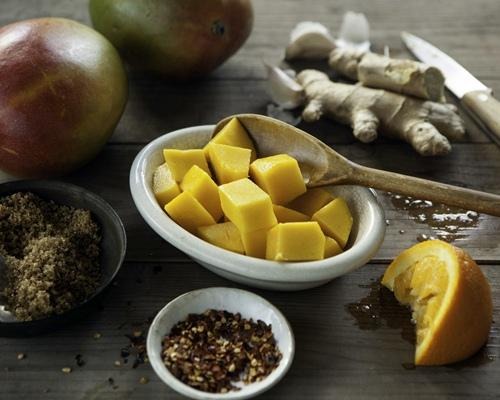A Buyer's Guide To Ribs
Few summer barbecue experiences can trump sinking your teeth into a perfectly grilled, sauce-smothered rib. But if you're new to the rib game, weighing your options at the meat counter can seem a little daunting — there are so many choices!
Click here to see A Buyer's Guide to Ribs Slideshow
Luckily, with the right game plan and a little help from your butcher, you really can't go wrong. Here are a few key questions to consider to help you get started:
How much time are you working with?
Rule number one for preparing drool-worthy ribs is to cook them slowly, but that doesn't mean the process has to take days. Are you buying your ribs the day of the gathering? Will you have a few hours to let them slow-cook before finishing them off on the grill?
- Pork and beef ribs will need a good marinade (apple cider, orange juice... the options are endless) and about three to four hours of slow-cooking before you finish them on the grill. If you don't have time the day of, you can slow-cook your ribs the day before your gathering and grill them right before serving.
- If you're craving beef ribs, but don't have three hours for slow-cooking — ask your butcher for "flanken-style" beef short ribs. They are cut thinner, need just a quick marinade, and then are ready for the grill! If you're going for larger cuts, try the Spice-Rubbed Beef Short Ribs.
- Nothing beats the juicy, rich, and complex flavor of slow-cooked baby back ribs. Try poaching these pork ribs and then marinating them overnight before grilling to perfection with our Asian-Style Baby Back Ribs recipe. If you want to save a little time, use both a dry rub and a sauce and turn up the heat on the grill.
How many people are you serving?
If you're feeding the whole block, your best bargain options are pork spareribs, St. Louis-style pork ribs, and boneless beef chuck ribs. All three options offer plenty of delicious meat per rib for a great value price. On the other hand, if you're hosting a smaller gathering and want to go all out on flavor and texture, slow-cooking short ribs or baby back ribs is the way to go.
What flavor are you going for? Smoky, sweet, savory?
If you're asking around for the best rib recipe, be prepared to take notes! The topic has sparked many a heated debate, and every grillmeister boasts a master technique or secret sauce that's "to die for." The truth is, as long as you get the timing right, the sky's the limit. Stock your pantry for serious summer rubs and marinades or test out these tried-and-true prep tips:
- Dry-rubs: These mixes of dry spices and salts draw the moisture out of the meat to create a flavorful sauce-like coating. The key is striking a sweet, spicy, and savory balance that brings out the best flavors in the meat. Stay away from adding sugar or molasses, as that will burn the ribs. Just rinse raw ribs, pat them dry, and rub on a healthy dose of seasoning. Let ribs rest in your refrigerator for eight to 24 hours to let the flavors sink in before cooking. To play up the flavor of pork ribs, try this Hot and Sweet Spice Rub. For beef ribs, bold spices like this BBQ Beef Chile Rub and Coffee Cure or black peppercorn and mustard work beautifully. (Photo courtesy of Whole Foods Market)
- Wet Marinades: These liquid seasonings, like Fresh Mango Marinade or a simple combo of citrus juices, brown sugars (go easy on the sugars), and vinegars, help to tenderize and enhance the flavor of meat. Whether you're using a wet marinade on its own, or in addition to a dry-rub, let meat marinate for at least 60 minutes before grilling. Wet marinades can also act as a great baste throughout cooking to intensify flavor and boost moisture. (Photo courtesy of Whole Foods Market)
- Glazes: Finish off your ribs by brushing on a Hibiscus-Orange Glaze or barbecue sauce, but wait until the final hour of grilling. This allows the charcoal flavor to penetrate your food first and keeps the sauce from charring.
— Theo Weening, global meat coordinator for Whole Foods Market


